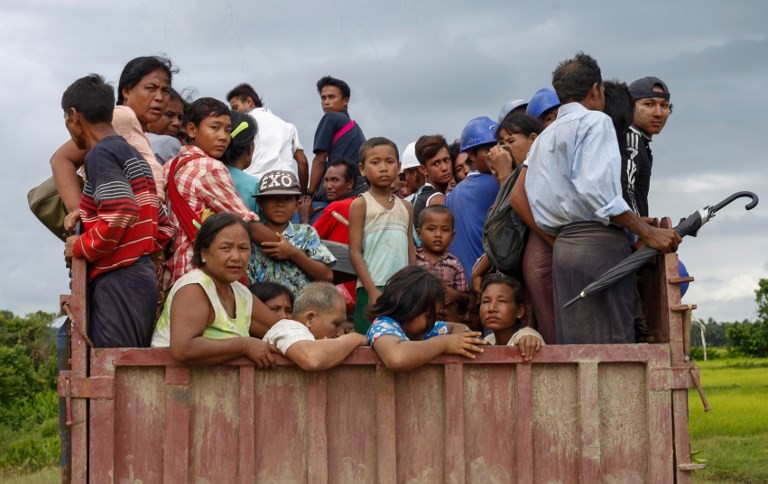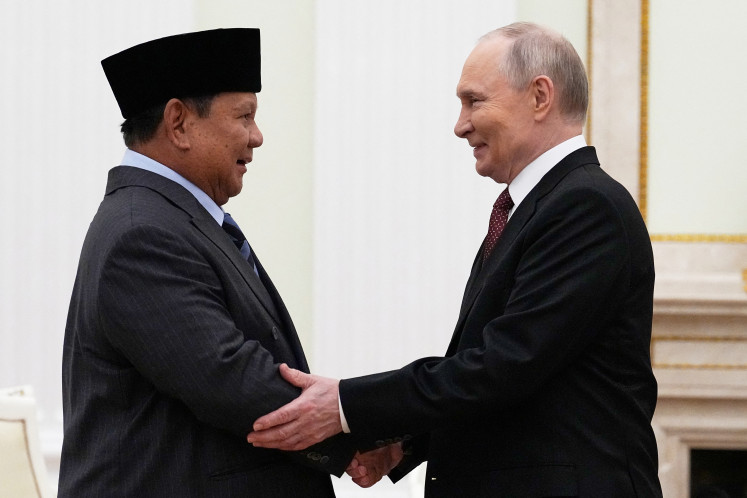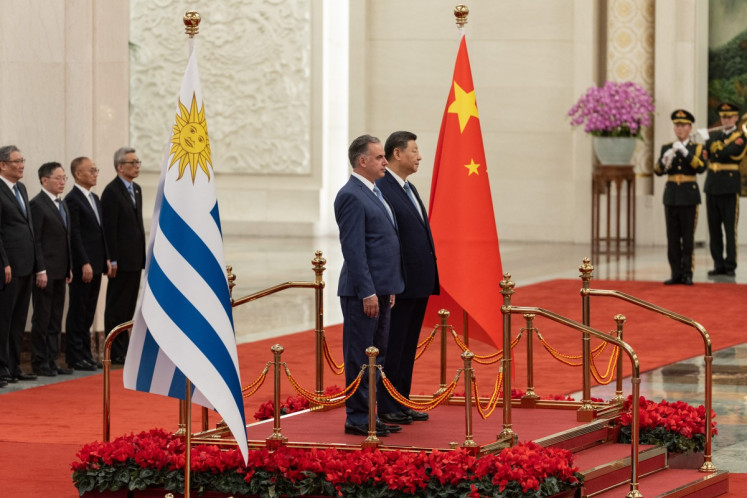Popular Reads
Top Results
Can't find what you're looking for?
View all search resultsPopular Reads
Top Results
Can't find what you're looking for?
View all search resultsFresh collective action required to address festering Rohingya crisis
About 750,000 mostly Muslim refugees remain in makeshift shelters across the Bangladesh border from Myanmar’s Rakhine State from whence they fled fearing for their lives. Predominantly Theravada Buddhist Myanmar has so far made it virtually impossible for them to return.
Change text size
Gift Premium Articles
to Anyone
D
espite the efforts of a number of international organizations and of diplomats and political leaders from a range of countries, the Rohingya crisis continues to fester. About 750,000 mostly Muslim refugees remain in makeshift shelters across the Bangladesh border from Myanmar’s Rakhine State from whence they fled fearing for their lives. Predominantly Theravada Buddhist Myanmar has so far made it virtually impossible for them to return.
Self-righteous indignation and castigation appears to be the initial and favored policy response by many governments, apparently not recognizing that their criticism drives the Myanmar authorities to dig in their heels even further in a proud act of defiance.
This indignant approach may be gratifying to those behind it, but it is counterproductive for those wishing to see the Rohingya crisis resolved.
Meanwhile, Bangladesh has proposed relocating most of them to a recently formed island that is just above sea level off the Bangladeshi coast known as Bhasan Char. Essentially it is a glorified sand bank. With the almost inevitable prospect of a major storm and a sea surge likely in the foreseeable future, that would be tantamount to sending them to their deaths.
The crisis with the Rohingya refugees has festered for the better part of two years and looks set to worsen as the rainy season makes havoc of fragile and crowded temporary camps.
In the past, Rohingya refugees fleeing on rickety boats have generated significant governance challenges for neighboring Thailand, Malaysia, Indonesia and Australia. Such an outcome, possibly on an even greater scale, must be avoided, but no realistic plan has emerged.
To be fair, a number of initiatives have been tried so far and failed. Gen. (ret.) Wiranto, representing the world’s largest predominantly Muslim democracy, Indonesia, has reached out and been rebuffed. Similarly, Gen. Prawit, representing the predominantly Theravada Buddhist neighboring country of Thailand, has met with similarly unsatisfactory progress, despite his closeness with Supreme Gen.Min Aung Lain.
Indonesia is well placed to act as a guarantor for their co-religionists among the refugees.
With bilateral and some multilateral initiatives having fallen short so far, there is a high level of pessimism that a solution can be found. Making matters worse, there are some who see this as the product of a so-called civilizational fault line between Muslims and Buddhists. But such thinking reduces a complex situation into an unhelpful and superficial caricature.
A concerted effort must be made to prevent this caricature taking further shape and capturing the imaginations of many who might be inspired to acts of retributive violence. Imaginative collective action is still possible.
In the past, collective action has been the catalyst for dramatic change. In 1992-1993, for instance, Australia, alongside Indonesia and Japan, along with the assistance of Thailand and others, facilitated an international endeavor that led to the Paris Peace Agreement and the return of tens of thousands of refugees back to Cambodia. This and other examples demonstrate the benefits of collective action to address regional crises.
A confluence of factors point to a new window of opportunity for such collective action.
Election outcomes in Indonesia, Thailand, Australia and India are providing an opening for these states to take a significant foreign policy initiative. This could involve these states, along with other willing participants, such as Japan and South Korea, working together to persuade Myanmar to make concessions, backed with a security guarantee from willing ASEAN and other regional partners.
Only Thailand is close enough to the true powerbrokers of Myanmar, the Tatmadaw, to persuade them of the need to avoid disunity and dysfunction within ASEAN.
Thailand can also help explain how it is in Myanmar’s interests to make ASEAN work and explain how allowing the Rohingya to return can lead to the lifting of international sanctions.
Similarly, Indonesia is well placed to act as a guarantor for their co-religionists among the refugees currently in Bangladesh. Indonesia also has expertise in managing extremist groups and could engage the Myanmar authorities to help ensure such elements are managed or dealt with.
Together, Indonesian and Thai authorities might explain to their Myanmar counterparts, notably the Tatmadaw leadership, how such a bargain could come with a security guarantee. Myanmar is averse to United Nations interventions and fearful of a Muslim resurgence, but perhaps a regional coalition, akin to the Multinational Force and Observers in the Sinai, could help allay security concerns.
Thailand is currently the ASEAN chair and the summit season is fast approaching. Thailand, with Indonesia, now have the opportunity to lead in a way that will bolster ASEAN centrality, help restore Myanmar from its pariah status, and facilitate engagement by other partners, notably Australia, Japan, the European Union and others who might be willing to lend a hand.
The time for innovative, visionary and collaborative action is upon us. Thai authorities can help craft a blueprint for endorsement by the time of the ASEAN summits in November.
Such an initiative likely would benefit not only those in Rakhine state. The benefits of sanctions relief and additional investment that might follow would generate positive effects potentially for the whole country, with additional investment initiatives that could be sought from Japan, China, the EU and the United States.
This is an opportunity to join hands to address a problem that is bigger than Rakhine state and Myanmar, and which affects the future of ASEAN.
***
The writer is professor of International Security and Intelligence Studies and head of the Strategic and Defense Studies Center at the Australian National University.











